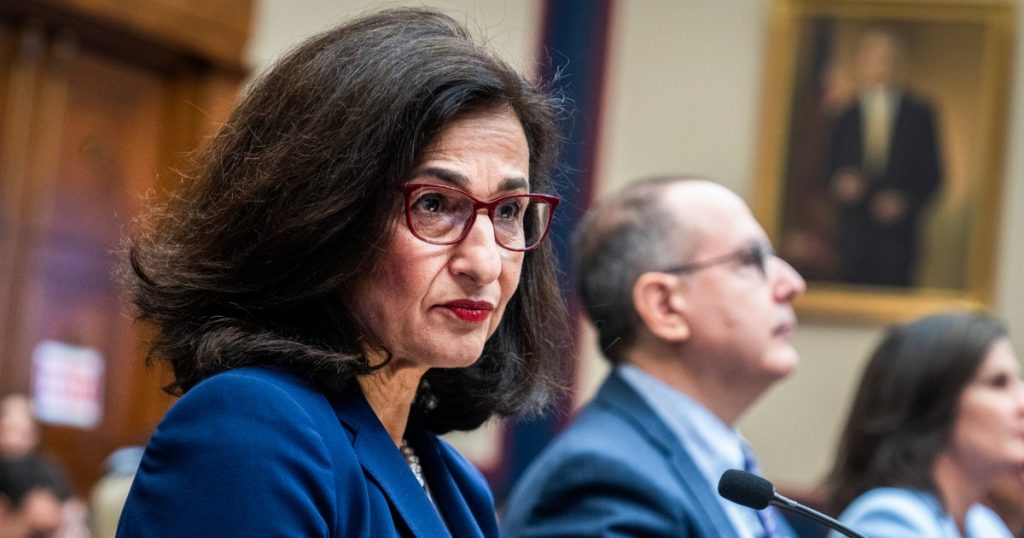Columbia University’s President Nemat “Minouche” Shafik strongly denounced antisemitism during a congressional hearing, stating that it has no place on the university’s campus. She expressed her commitment to confronting antisemitism directly following the attack by Hamas on Israel on October 7. Shafik faced questions about how the university handled remarks made by faculty members that were perceived as antisemitic, particularly focusing on Professor Joseph Massad, who referred to Hamas’ attack as a “stunning victory.”
During the hearing, Rep. Tim Walberg questioned Shafik about Professor Massad’s comments and asked why he was still listed as the chair of the academic review committee on the university’s website. Shafik condemned Massad’s statement and assured that he had been spoken to, but when pressed by Rep. Elise Stefanik about removing Massad as chair, Shafik said she would get back to her. The hearing became heated as Stefanik also questioned Shafik about another professor, Mohamed Abdou, who expressed support for Hamas, Hezbollah, and Islamic Jihad in a Facebook post.
Shafik’s testimony in Congress came after she declined to testify at a hearing in December due to scheduling conflicts. Her appearance followed intense scrutiny faced by the presidents of other universities such as the University of Pennsylvania, Harvard, and MIT for their responses to questions regarding antisemitism and hate speech on campus. Shafik and her colleagues affirmed that calling for the genocide of Jewish people violates Columbia’s rules, and she acknowledged that chants like “by any means necessary” and “intifada” were distressing.
In an op-ed published in The Wall Street Journal ahead of her congressional hearing, Shafik discussed the challenges of addressing the aftermath of the Hamas attack on a large and diverse urban campus like Columbia. She emphasized the importance of confronting antisemitism and responding to the aftershocks of the attack, stating that it has been particularly difficult given the campus’s long tradition of political activism. Shafik’s commitment to addressing antisemitism and ensuring a safe environment for all students was evident throughout her testimony in Congress.


